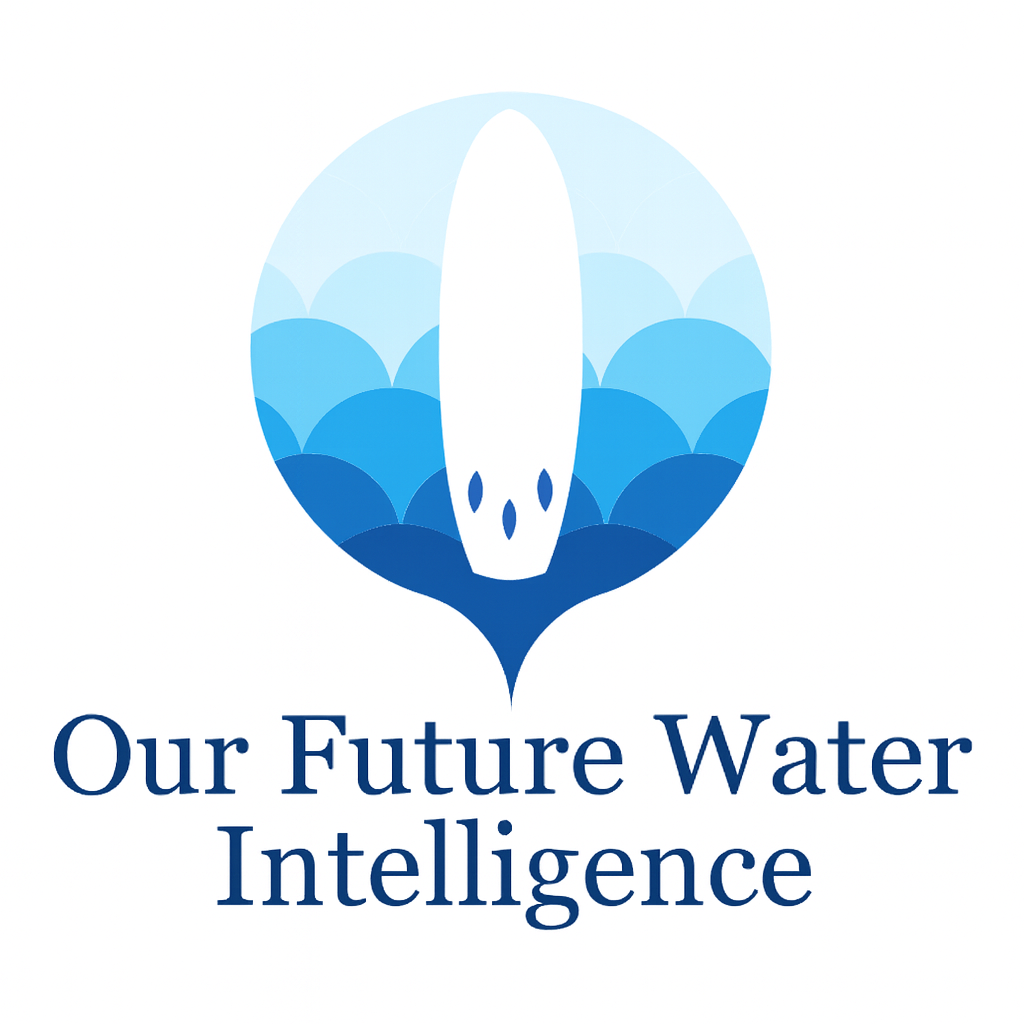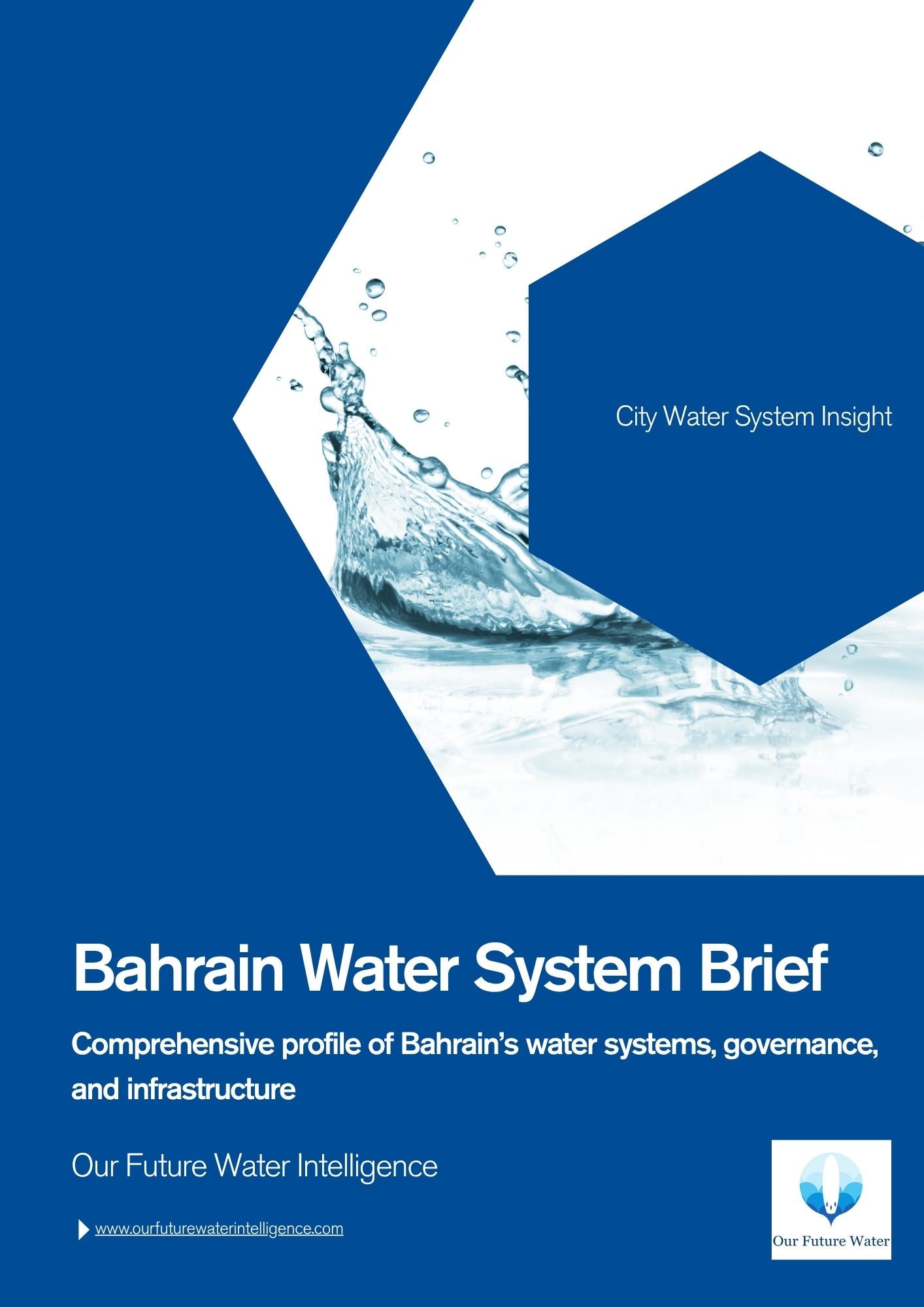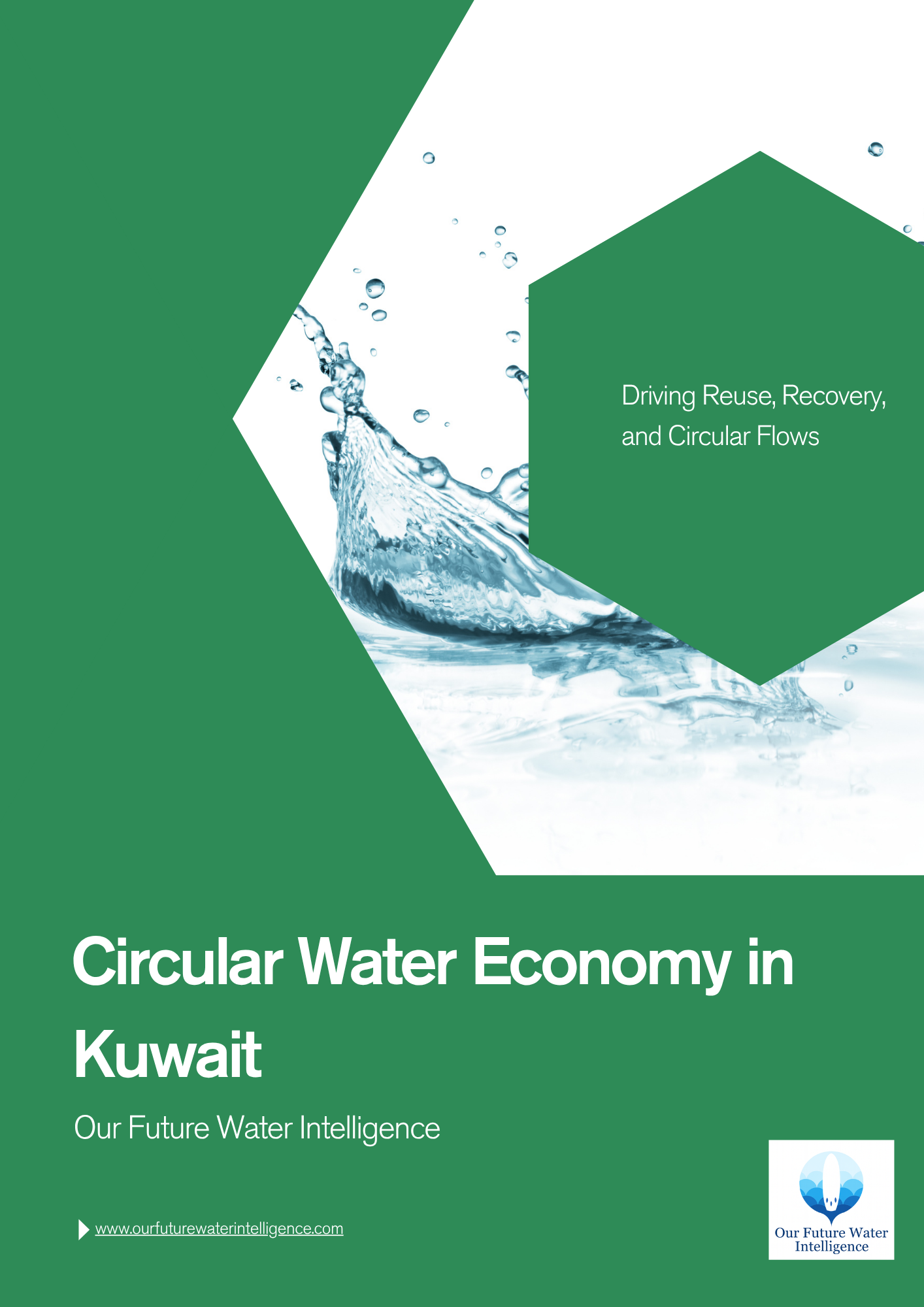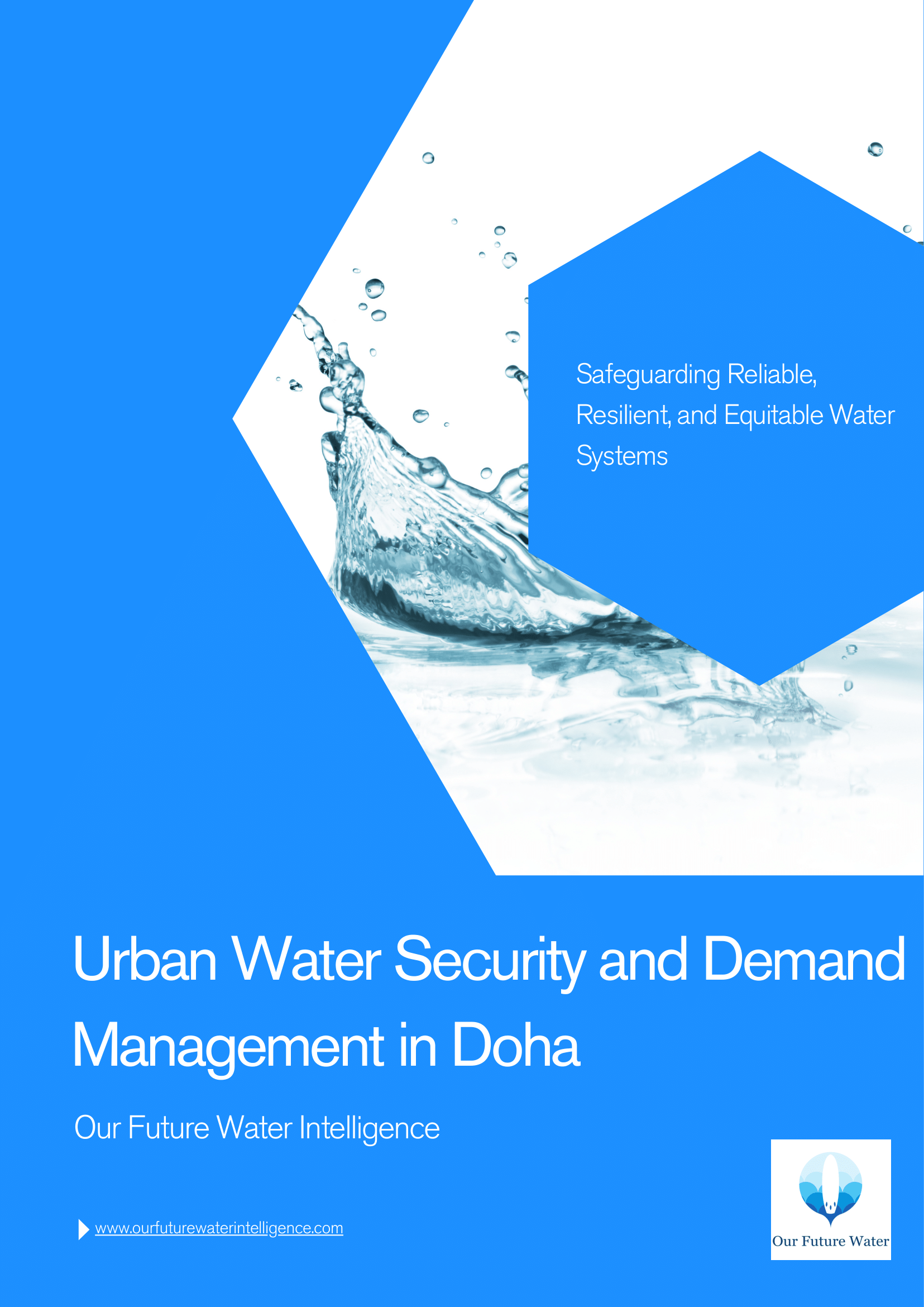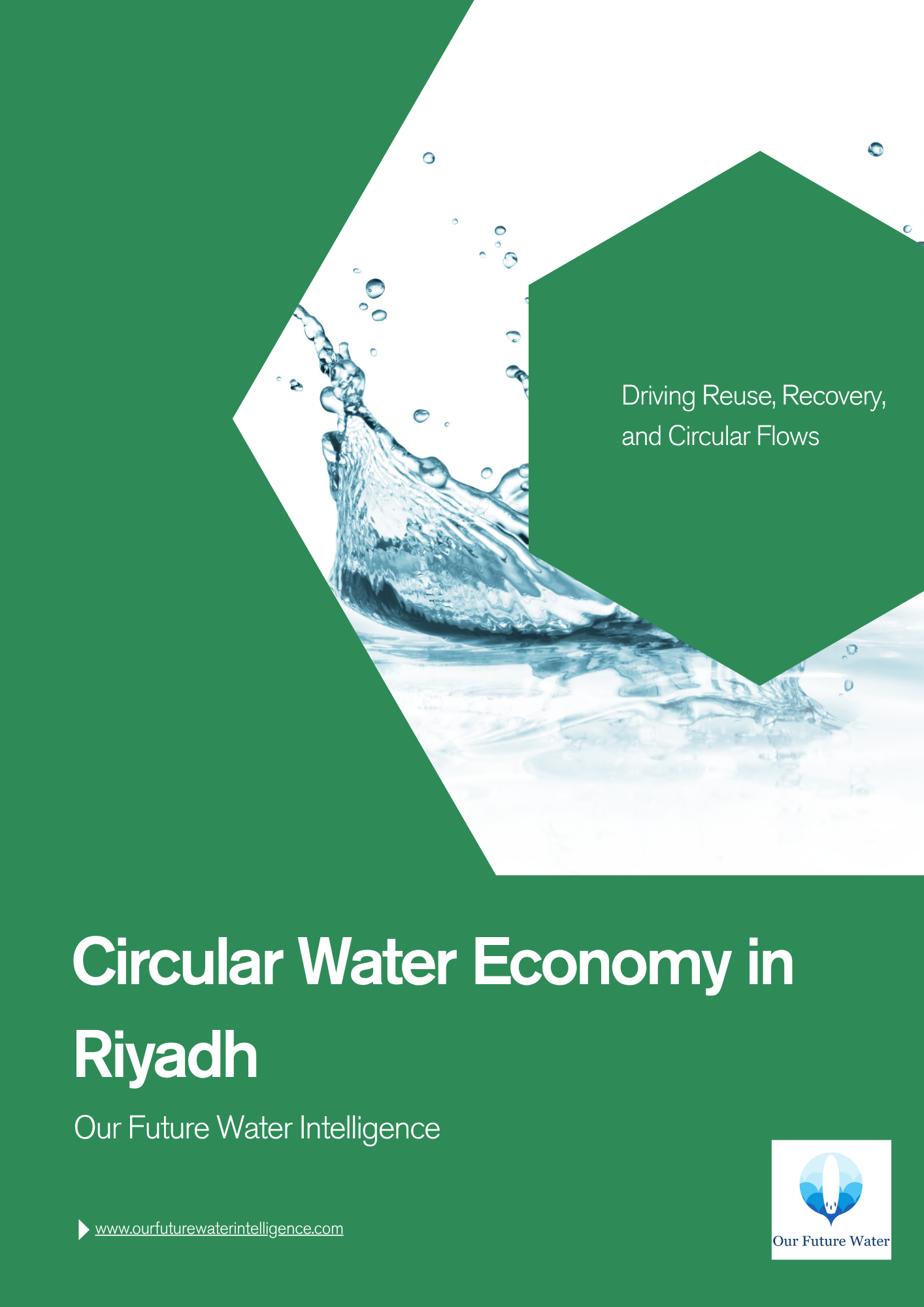Bahrain Water System Brief | Comprehensive Profile of Bahrain’s Water Systems, Governance, and Infrastructure
Bahrain Water System Brief: Comprehensive Profile of Bahrain’s Water Systems, Governance, and Infrastructure delivers an authoritative and data-driven analysis of the Kingdom’s urban water sector—examining the systems, governance structures, and infrastructure securing one of the most water-scarce nations on Earth. The report provides strategic intelligence on how Bahrain is managing complete desalination dependency, fiscal pressures, and climate challenges through advanced technologies, institutional reforms, and regional cooperation frameworks aligned with the National Water Strategy 2030 and GCC objectives.
Key Insights
Comprehensive Supply Transition
Bahrain has fully transitioned to desalinated seawater for public supply since 2020, maintaining its over-exploited aquifer strictly as a strategic reserve for emergencies. This transition underscores the Kingdom’s commitment to long-term water security amid climate and resource constraints.
Governance and Policy Leadership
A robust governance framework—anchored by the Water Resources Council (WRC), the Electricity and Water Authority (EWA), and the National Water Strategy 2030—integrates regulation, investment, and conservation within the GCC’s unified water vision, enhancing regional coordination and efficiency.
Infrastructure Modernization
Bahrain’s expanding desalination portfolio includes major projects such as Al Dur Phases 2 and 3, Sitra, and Hidd Independent Water Projects. Concurrent modernization of storage and distribution networks has achieved 100% water and wastewater coverage, reinforcing national resilience and service reliability.
Demand Management and Smart Systems
Nationwide implementation of smart meters, leak detection campaigns, and updated building codes mandating greywater recycling are transforming demand management. These initiatives have driven an 80% increase in water-use efficiency since 2000, aligning with sustainability and conservation targets.
Climate Resilience and Renewable Integration
The Green Climate Fund-supported “Enhancing Climate Resilience of the Water Sector in Bahrain” project strengthens institutional capacity and promotes solar desalination. It embeds water–energy–climate nexus thinking into national policy planning to address rising temperatures, energy costs, and carbon emissions.
Financial and Environmental Sustainability
Ongoing reforms targeting subsidy rationalization, tariff restructuring, and cost-reflective pricing ensure long-term fiscal stability while reducing the carbon footprint of desalination. These measures enhance transparency and economic sustainability across the water sector.
Digitalization and Data-Driven Planning
The Bahrain Water Resources Database—featuring over 440 variables integrated into GIS—enables evidence-based decision-making, progress tracking for SDG 6 (Clean Water and Sanitation), and improved transparency in national water governance and resource planning.
Designed for policymakers, utilities, investors, and consultants, Bahrain Water System Brief provides strategic foresight and actionable intelligence on achieving sustainable, low-carbon urban water management in the GCC’s most water-stressed environment.
